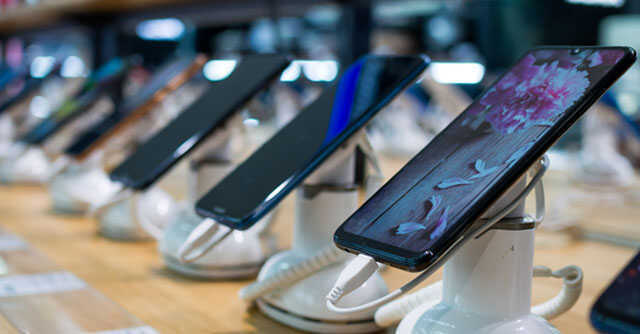
Weak demand, high prices lead smartphone shipments to fall 10% in festive quarter


Despite the early onset of festivities and a record-high market share of online sales, domestic smartphone shipments fell by 10% annually on the back of weak consumer demand and higher prices. According to market researcher International Data Corporation (IDC)’s quarterly tracker data for the September quarter, smartphone shipments in India fell to 43 million units — dropping by 10% year-on-year (YoY).
According to the firm, the September quarter, which is typically the strongest period for smartphone brands in India, registered its lowest shipment numbers since 2019, this year.
IDC also noted a consistently rising average selling price (ASP) of smartphones in India, which rose for the eighth straight quarter. As of the September quarter, the ASP reached $226 (around ₹18,500) — up 15% YoY from $194 (around ₹14,500) last year. Taking the dollar price strengthening into account, India’s ASP of smartphones have risen by nearly 28% in the past one year.

Upasana Joshi, research manager at IDC India, said that alongside rising supply chain costs leading to fewer discounts and increasing retail prices, a higher influx of more expensive 5G smartphones is also responsible for the rise in smartphone ASPs in India.
Joshi’s assessment is in line with retailers. Last week, Manish Khatri, partner at Mumbai-based Mahesh Telecom, told Mint that strong offers and a large portfolio of 5G devices saw brands such as Samsung and Vivo enjoy a strong festive period, even though the overall price of smartphones were higher than last year’s.
To be sure, 5G phones in India have also risen in its market share of overall quarterly shipments. According to IDC’s September data, 16 million 5G smartphones were shipped during the quarter, accounting for 36% of overall smartphone shipments during the period. This was also the highest ever share of 5G smartphones in total shipments, till date.

With these shipments and the festive sales taking place in this quarter, the total number of 5G devices in India’s installed smartphone user base reached 67 million. However, Navkendar Singh, associate vice-president of client devices at IDC, told Mint that the number of 5G smartphones in use in India by the end of this calendar year could be slightly lower than the firm’s early estimate of around 85-90 million 5G devices.
Singh added that a lack of availability of options at a mass-market price point, coupled with high supply chain costs preventing brands from being able to reduce 5G phone prices drastically, could be why India’s overall 5G phone user base may reach around 80 million by the end of the year.
Network availability, too, remains limited for now. On Friday, Mint reported that the first batch of 5G users in India are seeing a lack of consistency in terms of network coverage areas — even in cities where Bharti Airtel and Reliance Jio have announced their rollout of 5G services.

The average price of 5G phones, however, have fallen. According to IDC, the ASP of 5G-ready smartphones fell to $393 (around ₹31,800) in the September quarter — down by over 18% in INR from $509 (around ₹38,900) in the March quarter of 2020.
The premium smartphone segment priced at above $500 (₹40,000) was the only category that grew — with shipments rising 64% YoY. However, the premium segment continues to play a bit-part role in India’s overall shipments, and was thus unable to offset a decline of 15% YoY in shipment of smartphones priced below $300 (around ₹25,000) in the September quarter.
Apple led the premium smartphone market in India with 63% market share in the September quarter, followed by Samsung with 22% and OnePlus with 9%.

In the overall market, Xiaomi continued to lead with 21.2% market share, despite an 18% YoY decline in shipments. Fellow Chinese brand Oppo, which ranked fifth with 12.5% market share, was the only gainer among India’s top five smartphone brands — with shipments rising 6.1% YoY.
